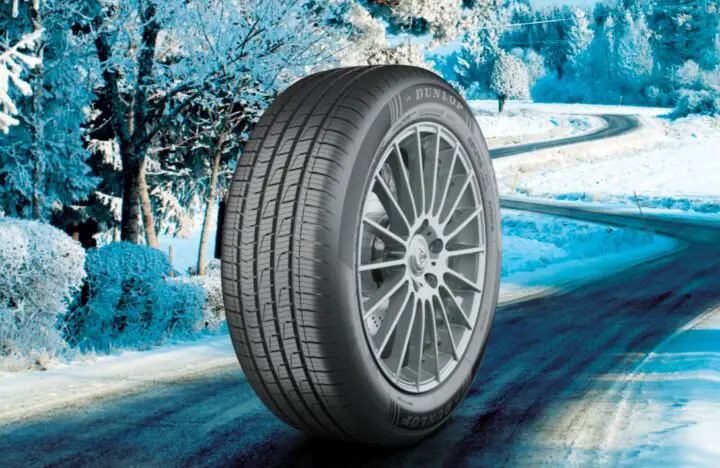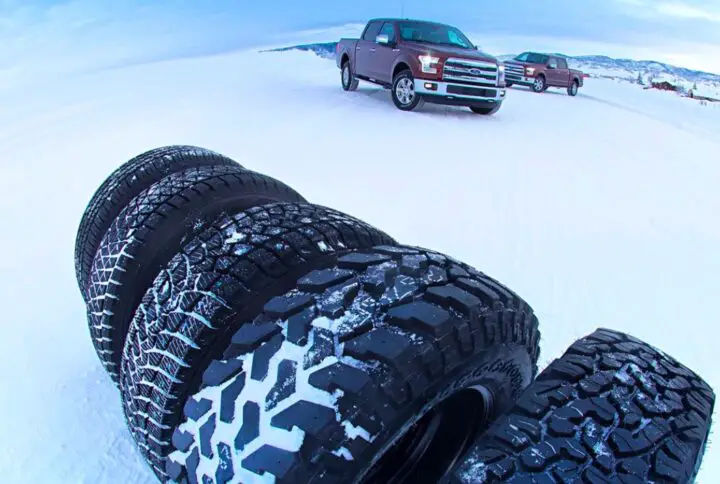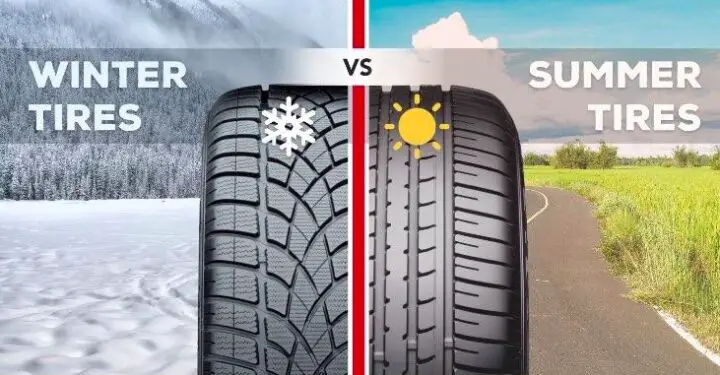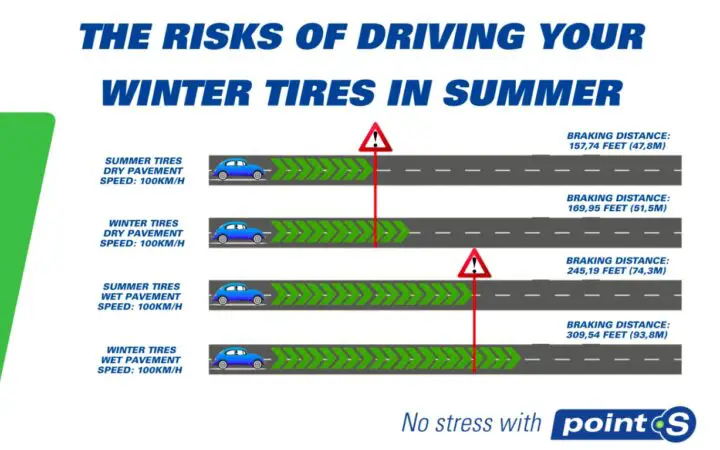Winter tires are a different make-up than other tires like all-terrain or all-weather tires. In fact, all-terrain and all-weather tires are great for conditions that don’t include the cold. Winter tires are special because they are designed for a wide variety of conditions that involve weather under 45°F (7°C).

The rubber is different. The tread is different. These things are crucial because they are unique to winter tires. They don’t perform great in warm weather and fair weather driving should be avoided with winter tires.
In the cold, winter tires are awesome! You will see a night and day difference and they could even save your life.
Table of Contents
What Are Winter Tires Made Of?
Winter tires are made of a different type of rubber than other tires. This is because they need to be softer in colder temperatures. Also, they need to perform well in wet conditions. This seems counter-intuitive, but patents have been filed that disclose techniques and recipes of rubber to give a tire maximum performance in winter-type weather conditions.
For example, Japanese rubber supplier Sumitomo Rubber Industries Ltd filed a patent for a type of rubber they developed specifically for winter conditions. The patent reads:
…discloses a rubber composition for a winter tire which contains large amounts of aromatic oil and silica and is enabled to improve the abrasion resistance, performance on ice and snow, and wet grip performance in a balanced manner. [Source]
There is a high specific formula for balanced performance on the ice, snow, and wet conditions. Any quality winter tire will have a type of rubber-like this as this is pretty much the only way to develop a quality tire meant for winter conditions.

Are Winter Tires Hard Or Soft?
Winter tires are soft when in use. If you compare a normal tire to a winter tire they are very similar in normal conditions. But when you compare the two tires in temperatures below 45°F (7°C) you will understand why you paid extra money for the winter tire.
The normal tire will harden or stiffen up in cold temperatures. Then observe the winter tire. It will not have changed. It will be pretty much the exact same as in t-shirt weather.
This resistance to change in cold weather is the main reason people buy winter tires. The winter tire maintains the same composure in most weather conditions. It stays soft and grippy when temperatures drop. It would be very hard to reach the lower operating limit of a winter tire outside of a lab. So you can be as confident as you can if you are driving in cold weather with a quality set of winter tires.

Can You Drive On Snow Tires All Year?
Yes, you can drive snow tires or winter tires all year. Though you will wear out winter tires very quickly in warmer temperatures. Winter tires perform optimally in temperatures below 45°F (7°C) so when temperatures are warmer than this consistently, you will want to change your tires out to your nonwinter tires.
You will find that your winter tires will perform very well in warmer temperatures but that is because the tires are very grippy and hold excellent traction. But that comes at a cost. You will wear out the tread of your winter tires very quickly.
It is recommended to have a dedicated set of winter tires you use during the winter (obviously) when temperatures are under 45°F (7°C) the majority of the time. And when temperatures rise, you should switch out the winter tires to a dedicated set of nonwinter tires for the rest of the year.
What Happens If You Use Snow Tires In The Summer?
Well, say you drive 15,000 miles a year. 6,000 miles are driven in winter conditions, while 9,000 miles are driven in normal weather. If you only use winter tires, after 6 years of driving you will use up the number of miles most winters tires are rated for (30,000-40,000 miles) with 36,000 miles in total.
If you drive those 6,000 miles per year AND you also drive 9,000 miles in warm to hot conditions with your winter tires, the softer rubber will wear faster. Those 9,000 miles in the winter tire’s eyes, will feel like maybe 18,000 miles or much more.
Buying those pricey winter tires and driving them year-round will get you may get 2 years of use out of them. Instead of switching them out, the two sets of tires you bought with your hard-earned money will last 6 years.
The right tool for the job. Did your dad ever tell you that? Mine did many times.
In this case, it rings true like most times. You can, of course, drive how you want. There are no laws that mandate how you drive with what type of tires. But do the smart thing and use the tires the way they are designed and make life easier on yourself.

